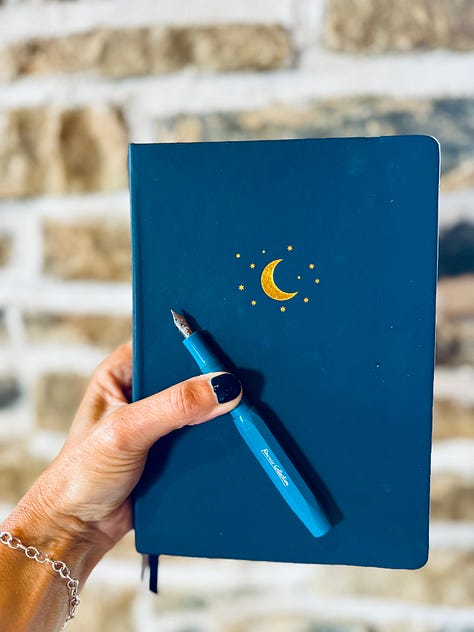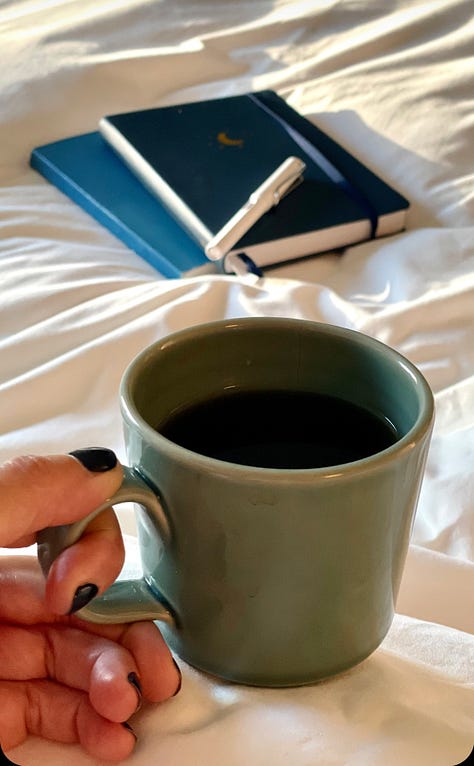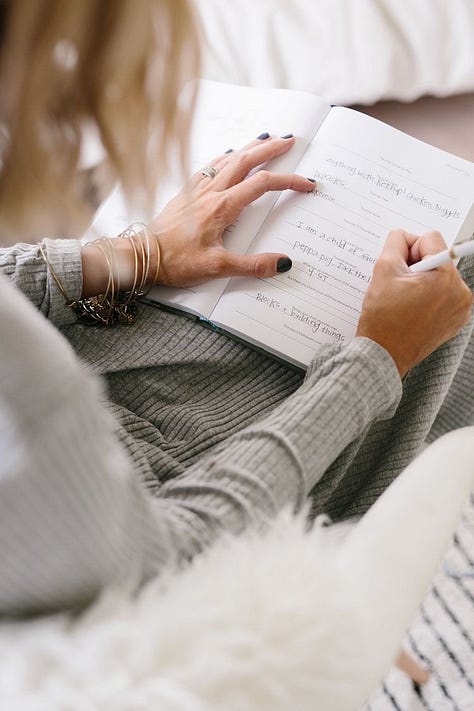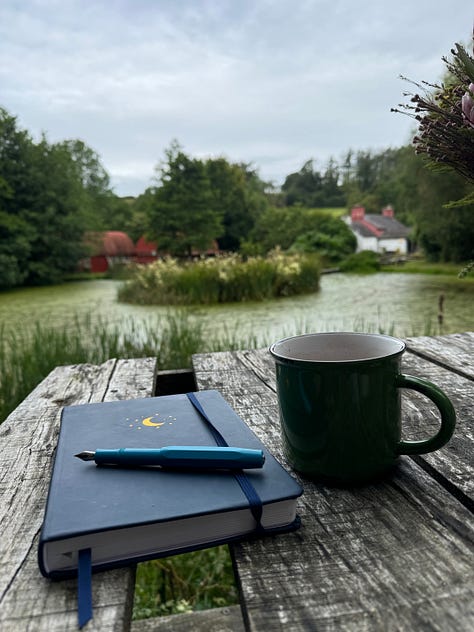





If you enjoy ‘with ease’ and would like to support my work, be offered first refusal my writing & wellbeing retreats with best selling authors, receive discounts towards my therapeutic journaling workshops, please consider becoming a paid subscriber. Thank you so much.
Dear Friend
How are you feeling today? I hope you’re well. Ooh and hello if you’re a new subscriber, so lovely to be connected. I noticed a flurry of newbie followers yesterday which always makes me smile.
I promised a group of healthcare practitioners that I met last weekend on a Lifestyle Medicine Retreat that I would write a little introduction about therapeutic journaling. Some of whom were keen to adopt a more consistent journaling practice and others were hoping to share new journaling techniques with their patients. It was so rewarding to witness doctors, district nurses, oncologists, anaesthetists and therapists eager to learn how to fit journaling into their busy days.
So whether you’re working in the health sect…




